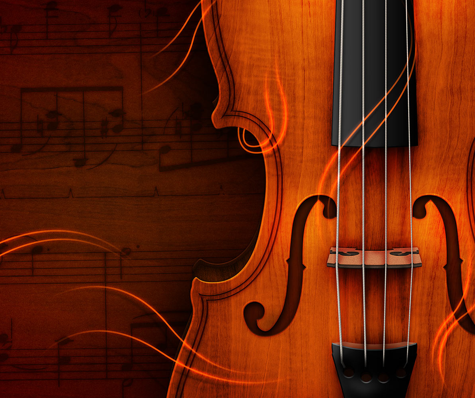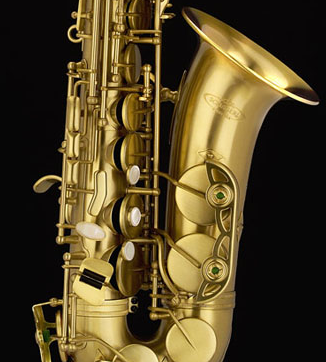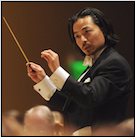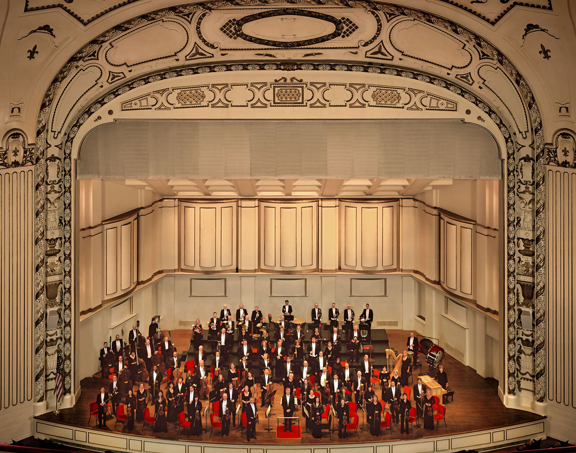Rookie Music Director – Journey for Finding Answers
March 4, 2011In the following article, conductor Shizuo Zuwahara, also known as “Z,” chronicles the months leading up to and following his appointment as Music Director of Symphony Orchestra Augusta (formerly the Augusta Symphony Orchestra). Z talks about the existing conditions he faced when entering an organization that was desperately in need of change. From the moment he was appointed music director, Z used great vision and mindfulness of the community to work with existing orchestra leadership and develop a new mission for the orchestra’s future. He helped the organization revisit the overall image of the orchestra and work cooperatively on deciding how they wanted to be perceived by the community. In this article, Z presents a great example of leadership off the podium, which will inevitably lead to greater artistic experiences for the musicians and the community of Augusta.
Tips for Students – Section Etiquette
February 21, 2011Musicians can sometimes fall into the traps of a casual working etiquette, undoubtedly influenced by our notorious “laid back” nature and lifestyle. In the following article, Aimee Morris discusses the importance of professionalism in the context of the orchestral section player.How you act, dress, talk, handle yourself, and of course perform all contribute to your overall success and viability in an orchestral setting.Take a moment to consider Aimee’s points of professionalism, and think about a few areas where you could perhaps enhance your orchestral etiquette.
Webcasting: A technology that can reach audiences beyond the performance hall
October 27, 2010Albert Einstein once said “I never think of the future. It comes soon enough.” Well fortunately, people like Sam Bottoni, the author of the following article, are thinking about the future and what it means to classical music organizations. Sam’s article focuses on the intersection between current technology and the concert hall, and how organizations can utilize cutting-edge methods of delivering content to their audience. As orchestras work to engage younger people in the concert-going experience, Sam’s informative points regarding the potential of technology are important for us to consider.Thinking about the future and how we reach and interact with our many potential audiences will be crucial to the success of our beloved music.
Moving Forward
In the following Article, Liz Mahler (no relation to Gustav) discusses her compelling journey from a liberal arts major in college, to a violinist in the New World Symphony, to an arts management professional. Her story touches on many important issues which are crucial for young musicians to hear. She talks about facing a performance-related injury, feeling unsure about her future path, and how she ultimately made a series of choices which have led her to a feeling of great direction.It is an inspiring story for us all.
The Aspiring Orchestral Saxophonist
The saxophone is an instrument which is not traditionally found in most orchestral works. However, as saxophonist Jason Kush points out in the following article, great opportunities do exist for saxophonists to perform in the orchestral setting. Jason talks about strategies which can help players gain access to these opportunities. He also points out some important considerations regarding etiquette, playing style, and general keys to success in an orchestral setting. Jason’s article will surely help you prepare for, and succeed in your next orchestral saxophone opportunity.
An Interview with Conductor Chung Park
In this interview, conductor Chung Park shares his path to becoming an orchestral conductor. Chung talks about the importance of having enormous respect for his orchestra players, and how he has balanced the importance for musical excellence and administrative savvy early in his career. He discusses his influences, his inspiration, and what drives him. In an age where conductors are being called upon for more than just musical direction, Chung represents the next generation of conductors who see and embrace the many responsibilities of their profession.
Making it Work – Two Musicians, One Life Together
September 14, 2010For musician couples, the following article by David Bebe is a must read.David, a cellist and conductor, talks about the complex obstacles that musician couples face when trying to both pursue careers in a highly competitive national arena. He and his wife Jamecyn, a violinist, have encountered these challenges together, living long distance at times, trying to balance their relationship and career aspirations.Ultimately, David offers several compelling points to consider as musicians plan for their future with a fellow musician at their side.
Vision 2020: The Future of Music
This “article” is a series of 3 papers written by students in an Entrepreneurship in Music course. The topic of the paper is “Music in 2020.” In other words, where do you think music will be in 2020? What will be new? How will the musical landscape have changed and evolved, and how should we prepare for that now? The three authors all express unique ideas and perspectives on the future of music. I suppose none of us know with certainty what the future will hold, but with innovative thinking and careful planning, perhaps we can influence that future just a little bit!
The times they are a’changing: Music in 2020!
This “article” is a series of 3 papers written by students in an Entrepreneurship in Music course. The topic of the paper is “Music in 2020.” In other words, where do you think music will be in 2020? What will be new? How will the musical landscape have changed and evolved, and how should we prepare for that now? The three authors all express unique ideas and perspectives on the future of music. I suppose none of us know with certainty what the future will hold, but with innovative thinking and careful planning, perhaps we can influence that future just a little bit!
2020: Opportunity for Change
This “article” is a series of 3 papers written by students in an Entrepreneurship in Music course. The topic of the paper is “Music in 2020.” In other words, where do you think music will be in 2020? What will be new? How will the musical landscape have changed and evolved, and how should we prepare for that now? The three authors all express unique ideas and perspectives on the future of music. I suppose none of us know with certainty what the future will hold, but with innovative thinking and careful planning, perhaps we can influence that future just a little bit!








